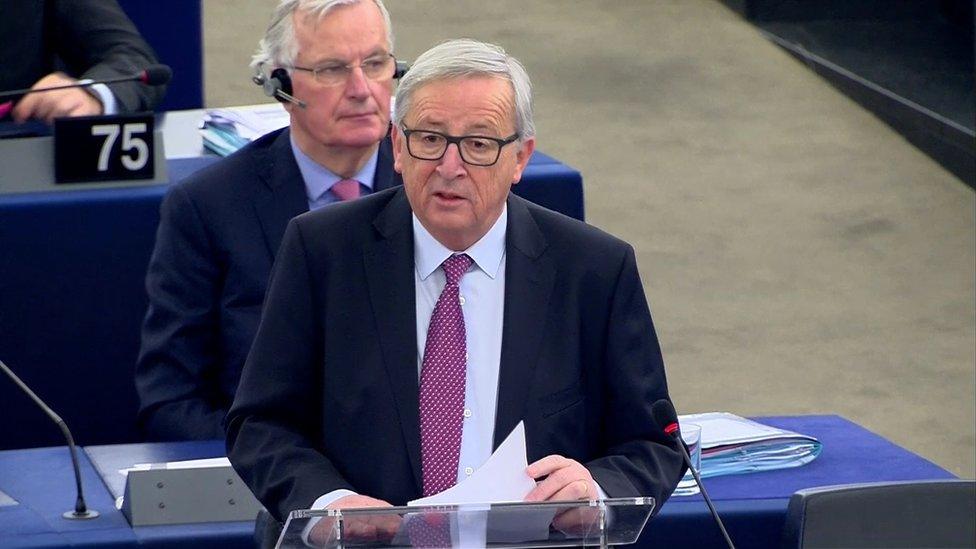Peace funding: Northern Ireland gets post-Brexit pledge
- Published
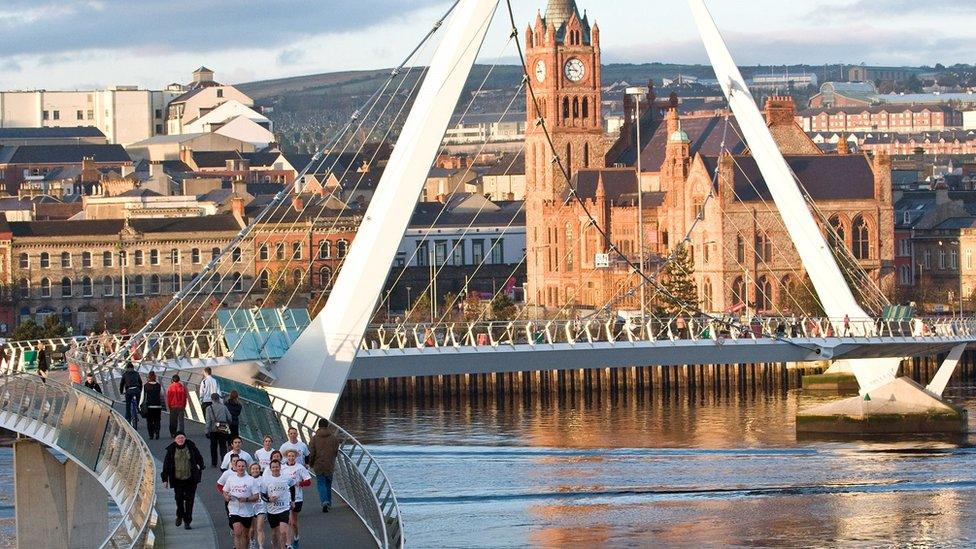
Londonderry's Peace Bridge is one of the major projects in Northern Ireland that EU funding helped to build
Northern Ireland is set to receive about £300m to continue funding peace and cross-border projects after Brexit, the government has announced.
The money will be made available from 2021 until 2027.
Northern Ireland Secretary Karen Bradley said the provision of the money would be an issue if the UK left the European Union without a deal.
The investment follows the EU's proposal in May to make £105m available for peace and cross border projects.
The government funding will be given to Peace Plus "as part of its unwavering commitment to uphold the hard-won peace in Northern Ireland after Brexit".
Ms Bradley said the funding would ensure "that generations to come grow up in a more peaceful and stable society".
'Very difficult'
She said that the withdrawal agreement negotiated by Prime Minister Theresa May provided a legal mechanism that meant the £300m in peace funding was guaranteed.
But without a deal the matter could prove "very difficult", she added.
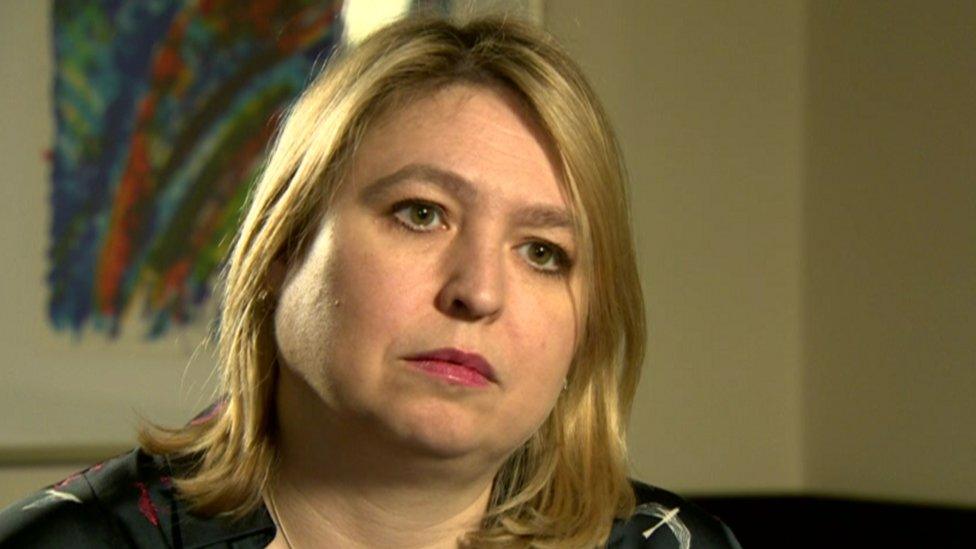
Karen Bradley said the funding would deliver vital projects on both sides of the Irish border
The Democratic Unionist Party's (DUP) Diane Dodds described Mrs Bradley's comments as "disgraceful and disingenuous".
"It is an appalling snub of the vital needs of communities impacted by years of violence and division in Northern Ireland, including innocent victims of terrorism," added the MEP.
"This intervention reflects her position as a bystander in the affairs of our province to date."
What is Peace Plus?
The new scheme is set to replace the current Peace scheme, which has been in operation since 1995, when it ends in 2020.
It applies to Northern Ireland and the border counties of the Republic of Ireland - Donegal, Sligo, Leitrim, Cavan, Monaghan and Louth.
Currently, Peace IV is operating, which focuses on children and young people, shared education, shared spaces and positive local relations.
It is funded by the UK, Ireland and the EU.
The programme as a whole has helped fund developments like the Peace Bridge in Londonderry and numerous projects supporting victims and survivors, children, business and regeneration.

Analysis: No impact on DUP votes
By Mark Devenport, BBC News NI political editor
The government's announcement doesn't come out of the blue.
The joint commitment from the UK and the EU to fund a successor to the Northern Ireland peace programme is part of the withdrawal agreement negotiated last year.
The funding will not have any impact on the voting intentions of the DUP who are already well aware of this pledge in principle.
If the prime minister's deal is rejected by MPs next week, an obvious question mark is placed over the Peace Plus programme, alongside all the other elements of the agreement.
That said, in practice it is hard to imagine any future UK government not wanting to demonstrate that it is just as concerned about providing stability in Northern Ireland as the EU.

What does it mean for the future?
The EU had already set out its plan for £109m of funding from 2021 to 2027 - now the government says on top of that it will support peace-building projects with this £300m fund during the same period.
That should maintain the same proportion of funding that it currently provides and there will be no break when the programme ends in 2020.
In its statement, the government said: "This flows from our joint commitment with the EU in the withdrawal agreement to maintain funding for vital work on reconciliation and a shared future for Northern Ireland until at least 2027."
It says the money will build on the almost £1.8bn of investment in projects in both Northern Ireland and Ireland.
How will it operate?
The government says it will work with the EU Commission and the government in Dublin to shape the programme.
The EU lays down annual budgets within a seven-year framework.
The next seven-year period begins in 2021 and Peace Plus will sit within that.
- Published29 May 2018
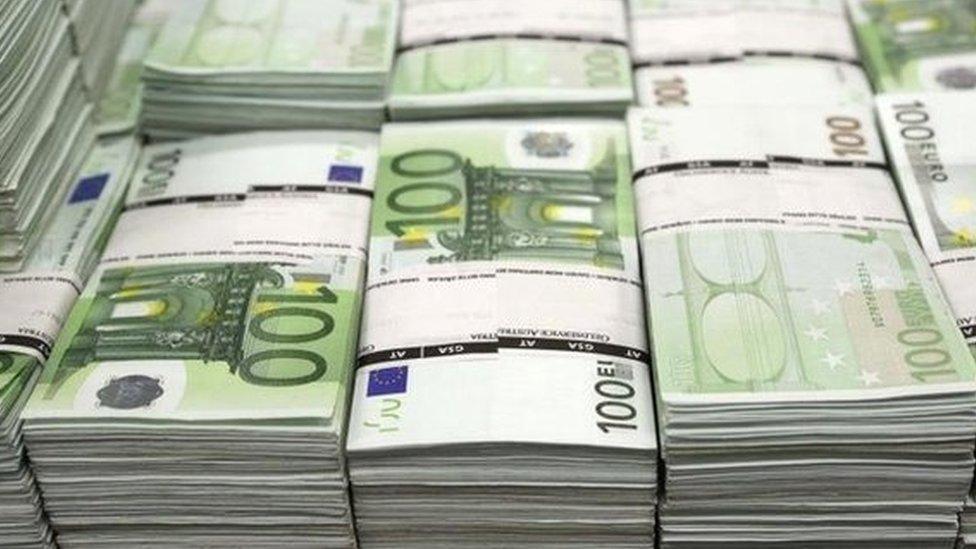
- Published8 January 2019
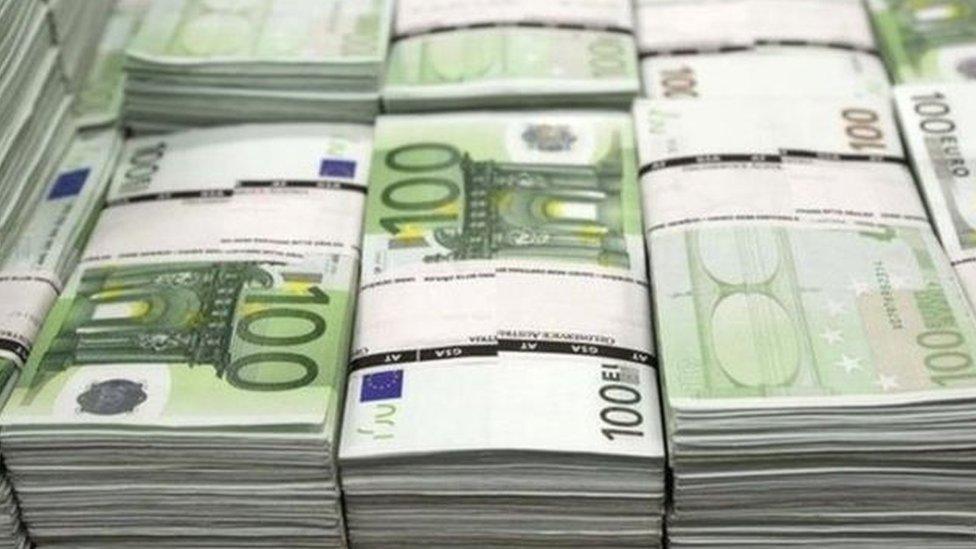
- Published17 January 2018
